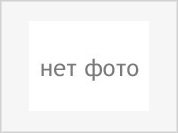Google Launches New Browser
Monday Google released a new content browser named Fast Flip.The browser makes it possible to see a curated set of content sites using a physical "turn the pages" metaphor. Fast Flip pages are cached by Google and load very quickly, which is cool. And if your brain is stuck in 1969 and you want to pretend that new-fangled computer in front of you is a microfilm reader, it'll feel natural to use.
Fast Flip is a good solution for putting a magazine or newspaper online, and it makes scanning even a more modern Web feed really fast. But it still feels forced. It's an intermediate online format that gives you an experience that's even more linear than a print publication, and it provides less overall context than you can get from a moderately well-design Web site.
In Fast Flip, neither standard Web rules nor print layout concepts apply. For example, in Fast Flip, you can only scan left and right (page by page). You can't read down the page. If you click anywhere on the page, you leave Fast Flip and go to the Web. Links don't work. And multimedia doesn't work on the page either. Fast Flip previews are, in fact, flat graphics files, which explains their lack of interactivity. On the mobile versions of Fast Flip, zooming in on a column is likely to leave you with text at a readable size but displayed on a column that's too wide to read without scrolling back and forth, making the feature rather useless. Hey Google, wasn't HTML invented for a reason?
- Fast Flip also displays Google ads alongside publisher content. I presume Google will share revenues with content providers, but this scheme does take control over advertising away from publishers, CNET News reports.
- TG Daily qouted Krishna Bharat, who delights in the job title 'distinguished researcher' - on the company blog, as saying, "The flow should feel seamless and let you rapidly flip forward to the content you like, without the constant wait for things to load," says Krishna Bharat - who delights in the job title 'distinguished researcher' - on the company blog. "Imagine taking 10 seconds to turn the page of a print magazine!"
It's most likely to take off in its mobile version, which offers tactile page flipping for Android devices and the iPhone.
- The company's keen to point out the benefits to publishers, promising to hand over "the majority" of ad revenue to them. "It also tests our theory that being able to read articles faster means people will read more of them, driving more ad revenue to publishers," says Bharat, TG Daily reports.
It was also repoeted, Ms Mayer told TechCrunch 50, a conference aimed at start-up companies, that Google co-founder Larry Page had asked why the web was not more like a magazine, allowing users to flip from screen to screen seamlessly.
Delegates were told that one reason had to do with media-rich content that took time to load - five to 10 seconds.
"We wanted to bring the advantages of print media, the speed and hands-on control you get with a newspaper or magazine, and combine that with the technical advantages of the internet. We wanted the best of both worlds," said Mr Bharat.
Ms Mayer revealed that initially they thought a solution to the problem posed by Mr Page was "a decade away".
- She explained that Google had long been trying to harness increased speed, "shaving a millisecond here and another millisecond there," BBC reports.
Subscribe to Pravda.Ru Telegram channel, Facebook, RSS!





